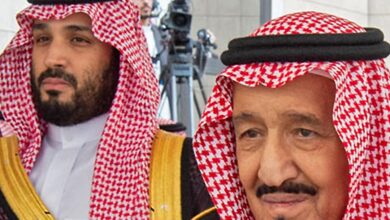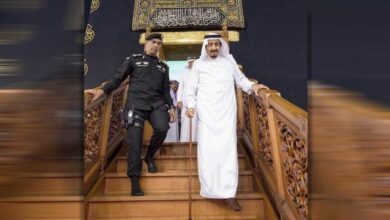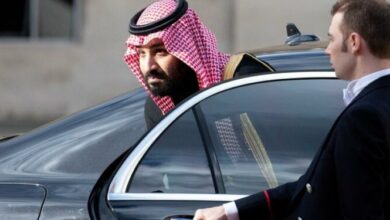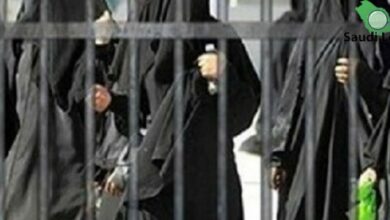This is how the Saudis depend on Washington’s policies
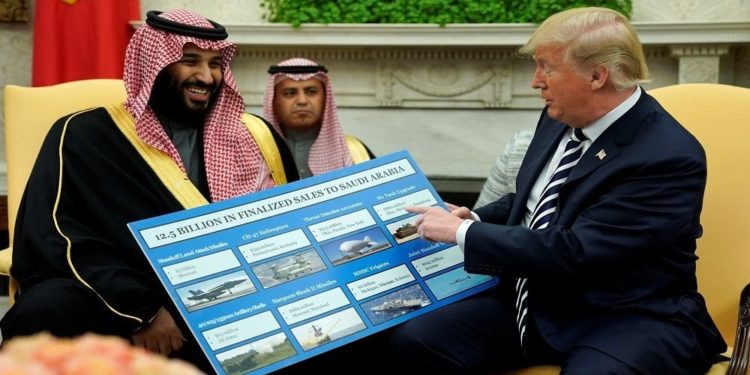
The economic situation in the Kingdom is going from bad to worse in view of the intensification of the global recession, which predicts an inevitable reduction in the prices of raw materials, including oil.
In 2018, the famous American economist, Nouriel Roubini, stated that bankruptcy awaits the Kingdom, after he saw the Saudi budget project for 2019, which projected the budget deficit to reach 4.2% of GDP, assuming that the price of a barrel of oil will remain at the level of US $80 per barrel.
But the price of a barrel in 2019 reached a much lower level, at $64 a barrel, while the budget deficit in the Kingdom in December 2018 amounted to 9.2% of GDP, and does not appear to be lower. In contrast, Riyadh expects the budget deficit in 2020 to rise to 187 billion Saudi riyals ($49.86 billion), from the expected 131 billion riyals ($34.93 billion) in 2019.
The Kingdom is a rich country, but the problem is that much of its wealth is virtually frozen. Riyadh cannot use a large portion of its reserves, and it is not known whether it will ever.
Riyadh has not fully recovered from the murder of journalist Jamal Khashoggi over its relationship with the United States, and charges of influencing US politicians are still being held accountable.
If the issue of Ukraine does not meet the objectives of the Democratic Party in its attempts to isolate the US President, Donald Trump, it is possible that the Democrats later go to the file of Riyadh.
Against this backdrop, any unfriendly move to the Kingdom, including the sale of US bonds, could cost a high price for the Kingdom.
Thus, Riyadh is not only unable to use its reserves, but must also increase its contribution to the US public debt as an expression of loyalty to Washington.
The Kingdom’s investment in US Treasury bonds rose from September 176 to September 2019 from $176.1 billion to $181.5 billion.
We should also not lose sight of the “political” purchases of arms from the United States of America in large sums, the costs of the war in Yemen and the support of allies.
These conditions have put Riyadh in a tough spot and it has to sell its shares, but even here it faces difficulties. The initial public offering of Saudi Aramco is chased by failure.
The Kingdom has estimated the price of the company at $2 trillion, which was not agreed with European banks, which reduced the estimate of the company’s price to less than $1.5 trillion.
When faced with this lukewarm position from the West, Riyadh halted propaganda campaigns in the West and Asia, announcing that it would only display its shares in the Gulf and within the Kingdom.
But Gulf finances are hard enough to reach the $25 billion Riyadh is counting on.
Investments in Saudi Aramco have therefore shifted from a commercial process to a purely political issue, requiring a solution at the level of heads of state.
The current situation, where the UAE’s remarkable economic indicators and, on the contrary, the growing difficulties of Saudi Arabia, is helping to shift the balance of power on the peninsula, which is becoming increasingly evident in the political dossiers, including the increasing independent and clear role of the UAE in Yemen.
At the same time, the reduction in oil prices, together with the global recession, cannot reach even the richest countries in the Gulf region. Surplus money now exists only in the central banks of the United States of America, the European Union and Japan, and they print it without charge.
As shown in press releases, Abu Dhabi is ready to inject $1.5 billion into Saudi Aramco, but this value is clearly not enough to make the IPO a success, and the political cost of raising the UAE’s contribution could be significant.
It is hard to imagine that the issue of Saudi Aramco’s IPO was not raised on the table during the recent visit of Crown Prince Mohammed bin Salman to the UAE.
However, the press statements did not mention a word in this regard. This often indicates the absence of any positive results for Saudi Arabia.


